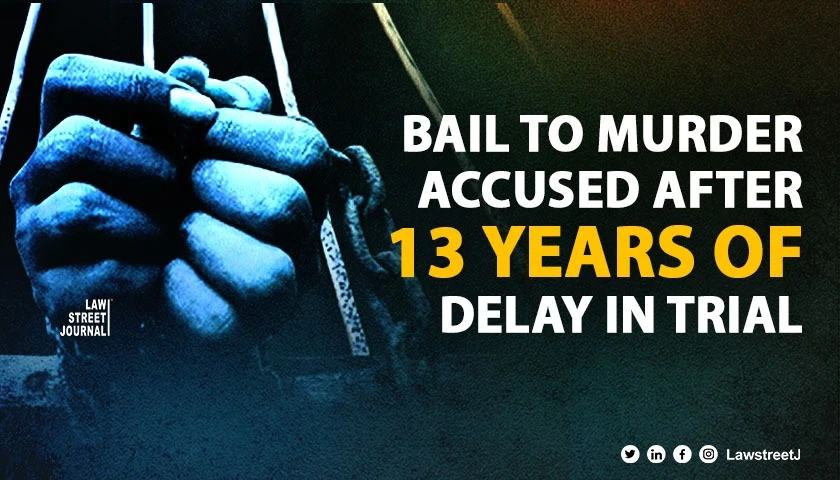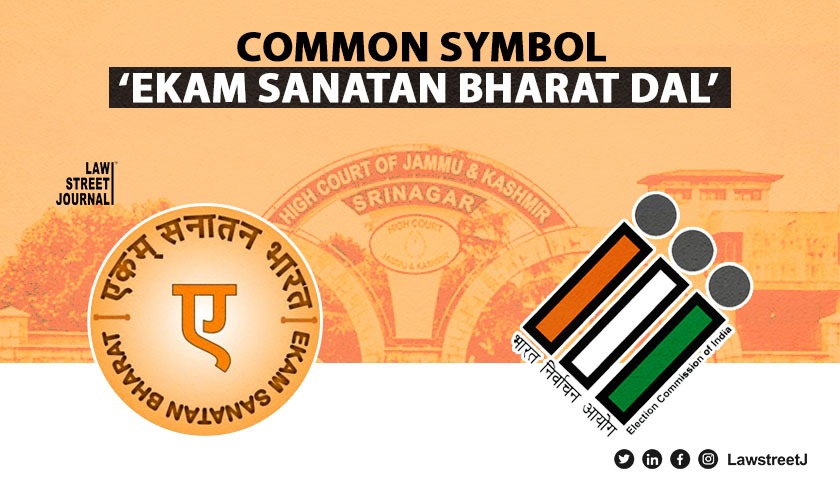Jammu: The High Court of Jammu and Kashmir and Ladakh has delivered a significant judgment, holding that an accused in a murder case can be granted bail despite the embargo in the Code of Criminal Procedure if there has been an inordinate delay in the trial, violating the accused’s right to a speedy trial.
Justice Rajnesh Oswal, while allowing a bail application, ordered the release of the petitioner, Raman Kumar, who was charged under Sections 302/34, 201 CrPC, and 4/25 of the Arms Act.
The court noted that the petitioner had been in custody since February 20, 2011, and the trial had been pending for final arguments for the last five years. The chargesheet was filed on April 19, 2011, and charges were framed on September 7, 2011.
Justice Oswal observed, “The manner in which the trial has been conducted in this chargesheet is quite shocking and disturbing. While the prosecution has delayed the trial without any justification, the learned trial court has also miserably failed to ensure that the trial is completed within a reasonable time frame.”
The court highlighted several issues with the trial process. The prosecution’s evidence was initially closed on September 15, 2014, but an application for additional witnesses was filed on June 9, 2016. Despite a peremptory order to produce additional witnesses by December 7, 2016, the prosecution took until November 12, 2018, to finally close its evidence. The case has been pending for final arguments since March 18, 2019.
Addressing the right to a speedy trial, the court stated, “The expeditious disposal of the criminal case is not only in the public interest, as the guilty may be punished quickly, but it also protects the fundamental right of the accused to a speedy trial.”
The court relied on recent Supreme Court judgments, including Sheikh Javed Iqbal vs. State of Uttar Pradesh (2024), which held, “Bail cannot be denied solely on the grounds that the charges are very serious when there is no end in sight for the trial to conclude.”
On the issue of the embargo on bail for serious offenses, the court observed, “The embargo on granting bail in the Code of Criminal Procedure concerning offenses punishable with death or life imprisonment has been provided in the public interest, ensuring that such offenders, guilty of crimes punishable by death or life imprisonment, do not roam freely, thereby endangering the life and liberty of the common citizens.
However, Article 21 of the Constitution of India also includes in its ambit the right of the accused to a speedy trial.”
The court held that despite this general embargo, the accused deserved bail due to his 13 years of incarceration, the prosecution’s unjustified delay in the trial, the trial court’s failure to dispose of the case for a considerable period, and the absence of any fault on the part of the accused in delaying the trial. The court also noted that the petitioner had no criminal antecedents and had previously been granted interim bail, during which he surrendered as required.
The court stated, “Taking into consideration the petitioner’s incarceration for the last 13 years due to the protracted trial caused by the prosecution’s fault and the trial court’s inability to dispose of the chargesheet in the last five years, and the fact that the allegations against the petitioner are not related to any incident of terrorism, this Court is of the considered view that the petitioner deserves to be enlarged on bail.”
In conclusion, the court, while allowing the bail petition, also directed the trial court to dispose of the case within three months of receiving the order.




![Publicly slapping wife does not constitute outraging modesty: J&K HC [Read Order]](/secure/uploads/2024/02/lj_7549_husband-slapping-wife-publicly.webp)
![Jammu and Kashmir High Court Grants Bail To Gang Rape Accused, Emphasizes Presumption Of Innocence [Read Order]](/secure/uploads/2024/05/lj_6000_5007a767-4748-4bed-9dab-8fa14a4d262b.webp)
![Mere involvement of relatives in anti national activities in the past can not be a ground to deny Govt contracts: J&K and Ladakh HC [Read Judgment]](/secure/uploads/2024/06/lj_3301_79dd6df6-5b62-4057-8762-d0e460af98e6.webp)




